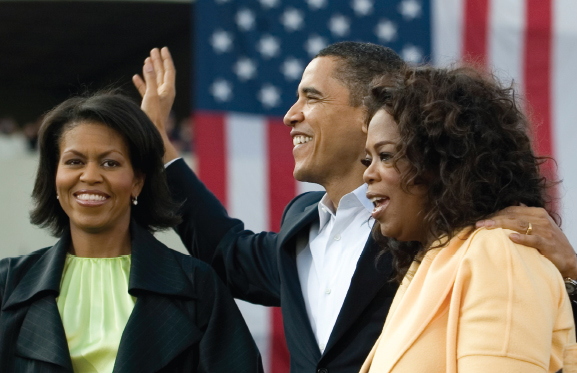Benefits of a Critical Perspective
Printed Page 26
Developing an informed critical perspective on the media enables us to participate in a debate about media’s impacts on our democracy and culture. For instance, on the one hand, the media can be a force for strengthening our democracy and making the world a better place. Consider the role of television in documenting racism and injustice in the 1960s—coverage that encouraged the Civil Rights movement. Or consider researched media reports that have stimulated interest in and tolerance of diverse cultures around the world (see “Media Literacy Case Study: Bedouins, Camels, Transistors, and Coke.”

On the other hand, the media have also helped to create a powerful commercial culture in our nation—a culture in which fewer and fewer multinational corporations dominate our economy and generate more and more of the media messages we consume. A society in which only a few voices are telling us stories about what’s important, what our values should be, and how we should behave is hardly a healthy democracy.
Because media constitute forces for both good and ill, it’s that much more important for each of us to think carefully about which media we consume, what messages we draw from those media, and how those messages are affecting our actions, the quality of our lives, and the health of our democracy. We need to ask additional questions, such as the following:
- Why might some people continue clinging to either/or thinking about media (such as “high-brow” versus “low-brow” books or movies) when so many boundaries in our society have blurred? Does this either/or thinking reflect a desire to keep people in their “proper” socioeconomic class?
- What does it mean that public debate and news about everyday life now seem just as likely to come from Oprah, Jon Stewart, or bloggers as from the New York Times, NBC Nightly News, or Newsweek?9 Can we no longer distinguish real news from entertainment? If so, does this affect how well informed we are?
- How can we hone our awareness of the economic interests fueling the messages delivered through the media we consume? For example, do you listen to a talk show on a radio station that survives on advertising revenue? If so, ask yourself how the host might distort information (for instance, deliberately inciting conflict between guests) to attract more listeners and therefore bring in more advertising revenue. (Advertisers only want to spend money on ads that will reach as many people as possible.) If such distortion is taking place, how reliable is the information you’re consuming by listening to the show?
Unfortunately, we can’t rely only on professional media critics or watchdog organizations to do all the work of critiquing the media for us and analyzing their effects on our lives. Each of us is also responsible for doing some of that work ourselves. As you read the different chapters in this book, you’ll learn more about each type of media—and you’ll hone your ability to examine them with a critical eye.